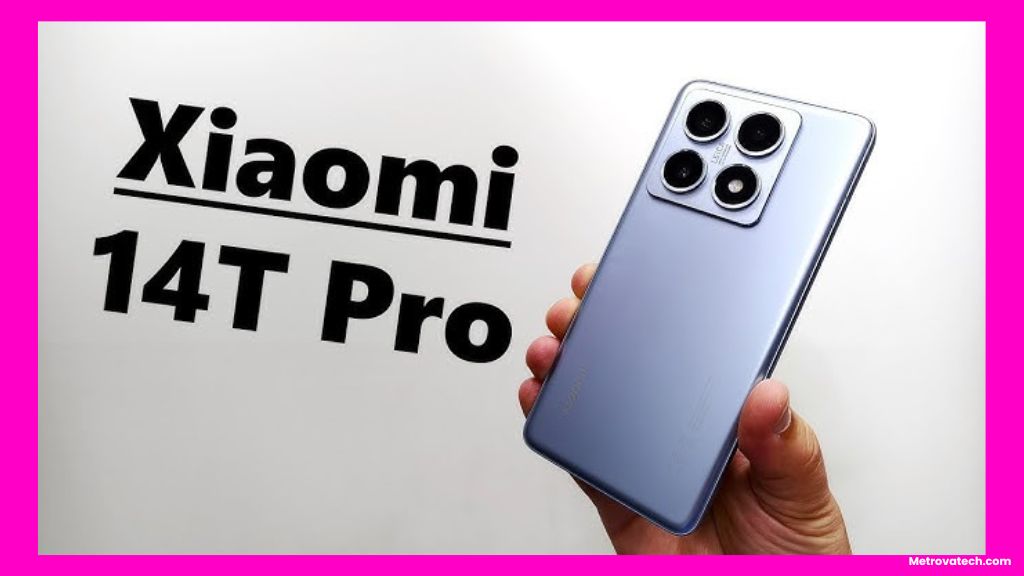The excitement of a new flagship phone launch never gets old, especially when you’re after that perfect mix of premium hardware and stunning style. Maybe you want your phone to look as good as it feels, or maybe you’re tired of making trade-offs between speed, battery, and camera. That’s where the Xiaomi 16 comes in—promising blazing speed, all-day battery, incredible visuals, and a polished, high-end feel. In this post, I’ll break down everything you need to know about the Xiaomi 16 series, from pricing and models to hands-on impressions of its best (and worst) features.
Xiaomi 16 Series at a Glance: Release Timeline, Models, and Pricing
The Xiaomi 16 series drops first in China, with a global rollout not far behind. You’ll see three main models: the standard Xiaomi 16, a Pro version, and the Ultra for those who want the absolute best.
- Launch Timeline:
The official reveal is set for July 2025 in China, with international availability likely following in August. - Models:
- Xiaomi 16 (Standard)
- Xiaomi 16 Pro
- Xiaomi 16 Ultra
- Pricing (estimated):
- Standard: $799
- Pro: $999
- Ultra: $1299
Each step up brings better camera hardware, more RAM and storage, and a few exclusive design touches. If you want to dig into early rumors and updates, you can find more Xiaomi 16 details and specs at TechAdvisor.
Design That Turns Heads: Materials, Display, and Build Quality
The Xiaomi 16 doesn’t shy away from making a statement. With ultra-thin bezels and gently curved edges, the phone feels almost borderless in your hand. The back comes in a variety of finishes, including ceramic glass and a slick two-tone option that stands out without being flashy.
Display Highlights:
- 6.8-inch OLED/LTPO screen
- Up to 2,600 nits peak brightness (great for sunlight)
- Adaptive 1-144Hz refresh rate for a buttery-smooth experience
- HDR10+ and Dolby Vision support
The display is protected by Xiaomi’s own “ceramic glass,” known for scratch resistance and extra durability. The Ultra model even features a frosted glass back that resists fingerprints. An IP68 rating rounds out the build, meaning you don’t have to worry about rain or accidental splashes.
Flagship Performance and Smart Features: Hardware, Battery, Software, and Cameras
Next-Level Speed: Snapdragon 8 Elite 2 and Daily Performance
The big headline is the debut of Qualcomm’s Snapdragon 8 Elite 2 chipset. This puts Xiaomi ahead of the curve, with the Xiaomi 16 Ultra tipped to be the first phone with this processor.
Why does it matter?
- Up to 30% faster processing than last year’s Snapdragon 8 Gen 3
- Better graphics for gaming, AR, and video
- Cooler temperatures thanks to a new vapor chamber cooling system
- Options for 12GB, 16GB, and even 24GB RAM
Whether you’re a gamer, a multitasker, or just hate lag, the Xiaomi 16 handles anything you throw at it without breaking a sweat.
All-Day Battery Life and Lightning-Fast Charging
Xiaomi packs in a larger battery this year—5,400mAh on the Ultra and 5,000mAh on the Pro. This matches or beats rivals like the Galaxy S25 Ultra and OnePlus 13.
Charging:
- 100W wired charging: From 0 to 100% in about 18 minutes
- 50W wireless charging: Full charge in under 45 minutes
You’ll spend less time plugged in and more time using your phone. Compared to the best phones of 2025, Xiaomi’s charging is among the fastest.
HyperOS 3 and Smart AI Features
The Xiaomi 16 series debuts with HyperOS 3, built on Android 16. This upgrade brings:
- Smoother animations and a cleaner interface
- Smart device integration (phones, tablets, smart home)
- Extra privacy controls for app tracking and location
- AI tools for on-device photo editing, note-taking, and even translation
HyperOS 3 feels fast, flexible, and easy to use, even if you’re new to Xiaomi phones.
Professional-Grade Cameras: Triple Sensors and Leica Collaboration
Photography is a big selling point. Xiaomi keeps its Leica partnership, tuning every camera for true-to-life colors and crisp detail.
Camera Array:
- Main: 50MP, 1-inch sensor (even bigger on Ultra)
- Ultra-wide: 50MP, wide field of view for landscapes
- Telephoto/Periscope: Up to 200MP on the Ultra for sharp zoom
- Selfie: 50MP, with pro-level portrait modes
The Ultra’s periscope lens lets you shoot distant objects with almost no loss in quality, great for travel or sports shots. Leica’s input shows up in vibrant photos, natural skin tones, and cinematic video modes. For more camera rumors, check out Notebookcheck’s Xiaomi 16 camera upgrade report.
How Does the Xiaomi 16 Stack Up to Rivals? Honest Pros, Cons, and Who Should Buy
Straight Comparisons
| Feature | Xiaomi 16 Ultra | Galaxy S25 Ultra | OnePlus 13 | iPhone 16 Pro |
|---|---|---|---|---|
| Display | 6.8″ LTPO OLED, 144Hz | 6.8″ AMOLED, 120Hz | 6.7″ OLED, 120Hz | 6.7″ OLED, 120Hz |
| Processor | Snapdragon 8 Elite 2 | Snapdragon 8 Gen 3 | Snapdragon 8 Gen 3 | Apple A19 |
| Main Camera | 50MP (200MP periscope) | 200MP | 50MP | 48MP |
| Battery | 5,400mAh, 100W charge | 5,200mAh, 45W | 5,000mAh, 80W | 4,700mAh, 35W |
| Software | HyperOS 3 (Android 16) | OneUI 7 (Android) | OxygenOS 15 | iOS 18 |
Pros
- Insanely fast charging
- Stunning display and premium build
- Great value versus rivals (especially Pro/Ultra)
- Leica-tuned cameras for real-world photos
- HyperOS 3 feels slick and modern
Cons
- China launches get updates first, so international users may wait
- MIUI/HyperOS quirks can frustrate Android purists
- No expandable storage
- Ultra model gets pricey
Who Should Buy It?
- If you want the best camera and fastest charging, the Ultra is hard to beat.
- Pro and standard models are perfect if you want high-end performance but value for money.
- Power users and content creators will love the RAM and storage options.
- If you care about long software updates or a “stock Android” feel, check out Samsung or Google Pixel instead.
For more on how the Xiaomi 16 compares to other flagships, see the CNET 2025 top smartphone rankings.
Conclusion
The Xiaomi 16 series raises the bar for Android flagships with a stunning display, record-breaking charging, and cameras that can compete with the best. The new Snapdragon chip and HyperOS 3 make it one of the fastest, smoothest phones you can buy in 2025. There are small trade-offs, like limited expandable storage and the China-first update cycle, but for most users, these don’t outweigh the benefits.






